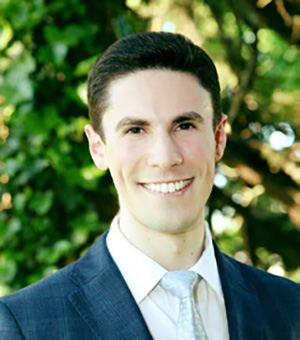
Newton’s First Law of Motion states that an object will stay in motion unless acted upon by an external force, and it’s easy to see this principle play out in our lives. When things are going well they tend to continue flowing forward. One good decision leads to another, and we ride the surge of confidence as we continue to push ourselves forward. This is the beauty of momentum. We can experience a push forward in our careers, a positive development in our relationships, or take the next step in our spiritual growth.
But this same momentum can be our undoing as well. Some days one bad move leads to another, leading to a seemingly unstoppable downward spiral. Maybe we snooze our alarm one too many times and the next thing we know we’ve taken our frustration out on those closest to us, made a mess of our work, and spent the day walking around in a hostile daze.
How do we control this momentum instead of becoming a victim of it?
The answer goes to the very core of Rosh Hashanah and the process of self-transformation: free will.
Free Will and Teshuva
In the Torah, God presents the Jewish people with a stark choice: There is good, and the blessing that accompanies it, and bad, with its accompanying curses. “Choose life,” God commands us (Devarim 30:19). The Rambam discusses the Jewish view of free will in the Laws of Repentance because teshuva, true repentance, exists only within a world of free will.
While teshuva is often translated as repentance, its literal meaning is “return.” The goal of teshuva is not only to free ourselves of punishment and responsibility from our past. It’s about self-transformation, returning to a higher and better version of ourselves. We don’t only wish to escape, we wish to ascend. It is upon this premise that the Rambam describes the three-step process of teshuva.
The first step of teshuva is recognizing that there is a problem to fix. It is impossible to solve a problem without first admitting that the problem exists. It is all too easy to simply push forward in life, ignoring our inner and outer struggles. But that results in the downward cascade described above. Only by acknowledging the problem can we stop the downward momentum and actually solve it.
The second step of teshuva is to regret one’s mistake. Often, we know a problem exists but we don’t feel ashamed or even bothered by it. Without internal regret we won’t be motivated enough to take the actionable steps required to make real change. When we allow ourselves to powerfully feel the inner contradiction between how we could be living and how we currently are living, we can generate the emotional response necessary to genuinely regret past mistakes.
Third, we must commit to an improved and ideal future, one in which we will not repeat this mistake. We need to commit to strive toward a greater version of ourselves, whereby if given the chance to repeat this mistake we would overcome the challenge and not give in to temptation.
Breaking Momentum
A person’s actions express their very essence, and changing those actions is a process of complete transformation. Free will is the foundation of this process of change. The only way that one can genuinely change is through the unique human capacity to assert one’s inner will, to create a new reality within oneself. It is this decision to change, to become a new, fundamentally higher being, that creates true return.
Rosh Hashanah, and Elul in general, provides a unique opportunity to jumpstart change and break free from negative momentum that may be dragging us down. At the heart of Rosh Hashanah lies the cry of the shofar. The shofar is a jarring sound and it pierces both the air and our hearts. The shofar shakes us, reminding us that we are not stuck. Regardless of how entrenched in our ways we may feel, at our very root we are free beings, and we can assert that freedom in a decision to genuinely change ourselves.
Change starts with a single decision to turn the tide, to begin building that positive momentum, to start climbing uphill and move toward your true and higher self. If you can take that first step and push toward greatness, your life will start riding that new wave of positive momentum. This is the power of choice.
This is the root of teshuva. If you can make a new decision you can create a new reality for yourself. When the shofar blows this year, let us truly awaken. May we all be inspired to fully utilize this Elul and Rosh Hashanah to embark on a journey of genuine teshuva and continue the process of becoming our true and higher selves.
Practically speaking, this means making at least one decision to improve every day. Write down each day’s decision, and then keep track and document as you push forward and follow through every single day. After a while, what once seemed impossible becomes almost second nature. And then you choose something else to work on. As Martin Luther King Jr. once said, “You have to fly toward your dreams; but if you can’t fly, then run; if you can’t run, then walk; if you can’t walk, then crawl; but whatever you do, you have to keep moving forward.”
Shmuel Reichman is an inspirational speaker, writer and coach who has lectured internationally at shuls, conferences and Jewish communities on topics of Jewish thought and Jewish medical ethics. He is the founder and CEO of Self-Mastery Academy (ShmuelReichman.com), the transformative online course that is revolutionizing how we engage in self-development. Shmuel currently lives in Washington Heights with his wife. You can find more inspirational lectures, videos and articles from Shmuel on his website, www.ShmuelReichman.com.










